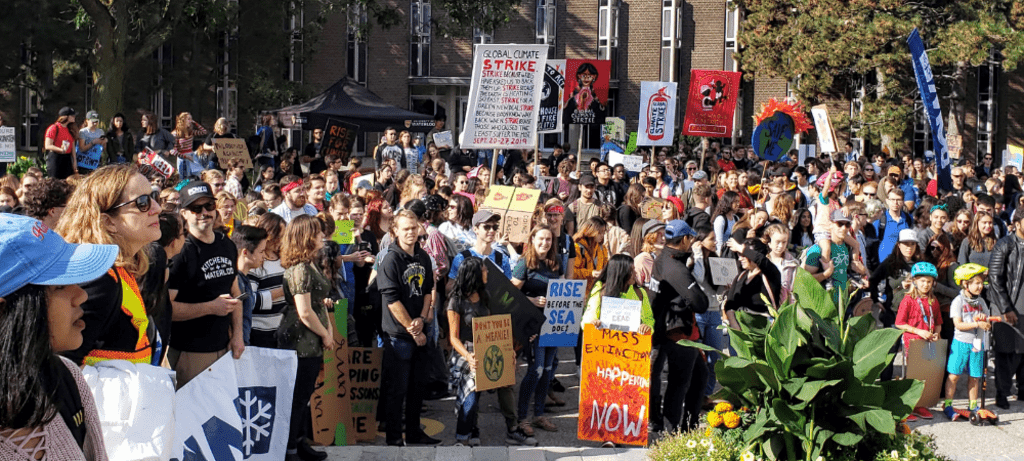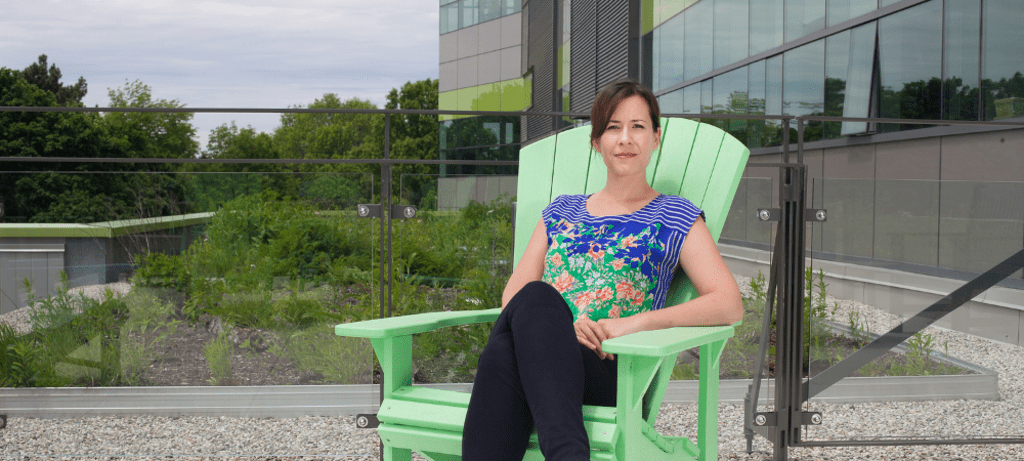Estimated reading time: 5 minutes
On April 27, 2022, Sarah Burch, Executive Director at the Interdisciplinary Centre on Climate Change (IC3), spoke with climate scientist Katharine Hayhoe, who The New York Times called “one of the nation's most effective communicators on climate change.” They discussed climate change communications, strategies for individual and collective action, transition inequities, the role of children and youth, and so much more. They also weighed in on what we’re all wondering – is there hope? Here are five highlights from that conversation:
1. We must communicate the risks as well as the solutions.
Emissions over the last 10 years have been the highest they have been in human history. Without immediate and deep action, the goal of limiting warming to no more than 1.5 degrees Celsius is beyond reach. But, for the first time ever, we have evidence that climate solutions are working. The solutions to climate change now exist; we just have to adopt them. These two parts of the conversation are inseparable and must be talked about in tandem.
2. Ordinary people are the only ones who have ever been able to change the course of our world.
And we must do it again! Now, more than ever, our choices determine the future we want to have. The future is up to us and there is a growing consensus that immediate action is needed.
3. Our actions matter, but even more important is acknowledging how we make a difference.
How our actions influence those around us. As Mother Theresa said, “I alone cannot change the world, but I can cast a stone across the waters to create many ripples.” In saying that, we must also acknowledge that individuals are currently locked into high carbon systems that make individual choices expensive/hard. These systems need to change. That’s why voting is so important. And why taking climate action, in whatever way is available to you, is significant because it shows decision makers that you are prioritizing climate action, which should in turn make it a priority for them too.
4. We must talk about the future we are working towards.
Missing from the climate conversation are discussions about what we want our future to look like. What are we working toward? What is the future we are trying to obtain? It is more mobilizing to focus on our vision than the impending doom.
5. Caring for yourself is a climate action.
Be kind to ourselves. Spend time with those you love, what you love and where you love. It will help you keep going in this work.
Sarah and Katharine’s rich conversation led to the conclusion that the future is not guaranteed, but it is up to us! To have hope means coming to terms with the truth of the climate crisis. Once we do, we can identify important opportunities and focus on solutions that can help steer us along a transition to a resilient, low carbon future.
For more details, watch the recording and check out the resources Sarah and Katharine shared below.
Resources
- The Intergovernmental Panel on Climate Change (IPCC) released a new report, Climate Change 2022: Mitigation of Climate Change. The report is important as it informs international negotiations and tells us where we are in terms of our global greenhouse gas emissions, what steps we can (and already are) taking to reduce them, and how we can speed up this process while also taking justice and competing priorities into account.
- Hope in the Dark by Rebecca Solnit shows us how activism has changed the world before and provides new grounds for political engagement in the present. Her work also talks about the difference between hope and optimism – that hope, which she defines in a way that appreciates the nuances and hard truths of problems while also taking into consideration the possibilities for changing them.
- The Don’t Look Up – Count Us In climate platform is a helpful resource for inspiring individual climate action.
- Katharine encourages us to think less about our footprint and more about our “climate shadow,” a concept developed by Emma Pattee. Check out her article Forget your carbon footprint. Let’s talk about your climate shadow.
- FLICC is an acronym for the approaches people use to spread false information. It means: Fake experts, Logical fallacies, Impossible expectations, Cherry picking, and Conspiracy theories. Check out Cranky Uncle’s history of FLICC for more information about the 5 techniques of science denial.
- Talking to kids about climate change is important. Here are four resources to help adults have that conversation with the young people in their lives:
- What we most need is a vision of a better future! The Future We Choose by Christiana Figueres and Tom Rivett-Carnac is an excellent read on the subject.
- The Influential Mind by Tali Sharot can help us understand how the brain reacts when we face fear and anxiety, and underscores why it’s important to focus on the better future we’re working toward to help us sustain climate action.
- Iron + Earth is a great resource to learn more about the just transition in Canada’s oil and gas community.
- Saving Us: A climate scientist’s case for hope and healing in a divided world has many hopeful examples of win-win-win solutions in low-income countries.
Contact us for media inquiries to learn more about this or other climate change related stories.

